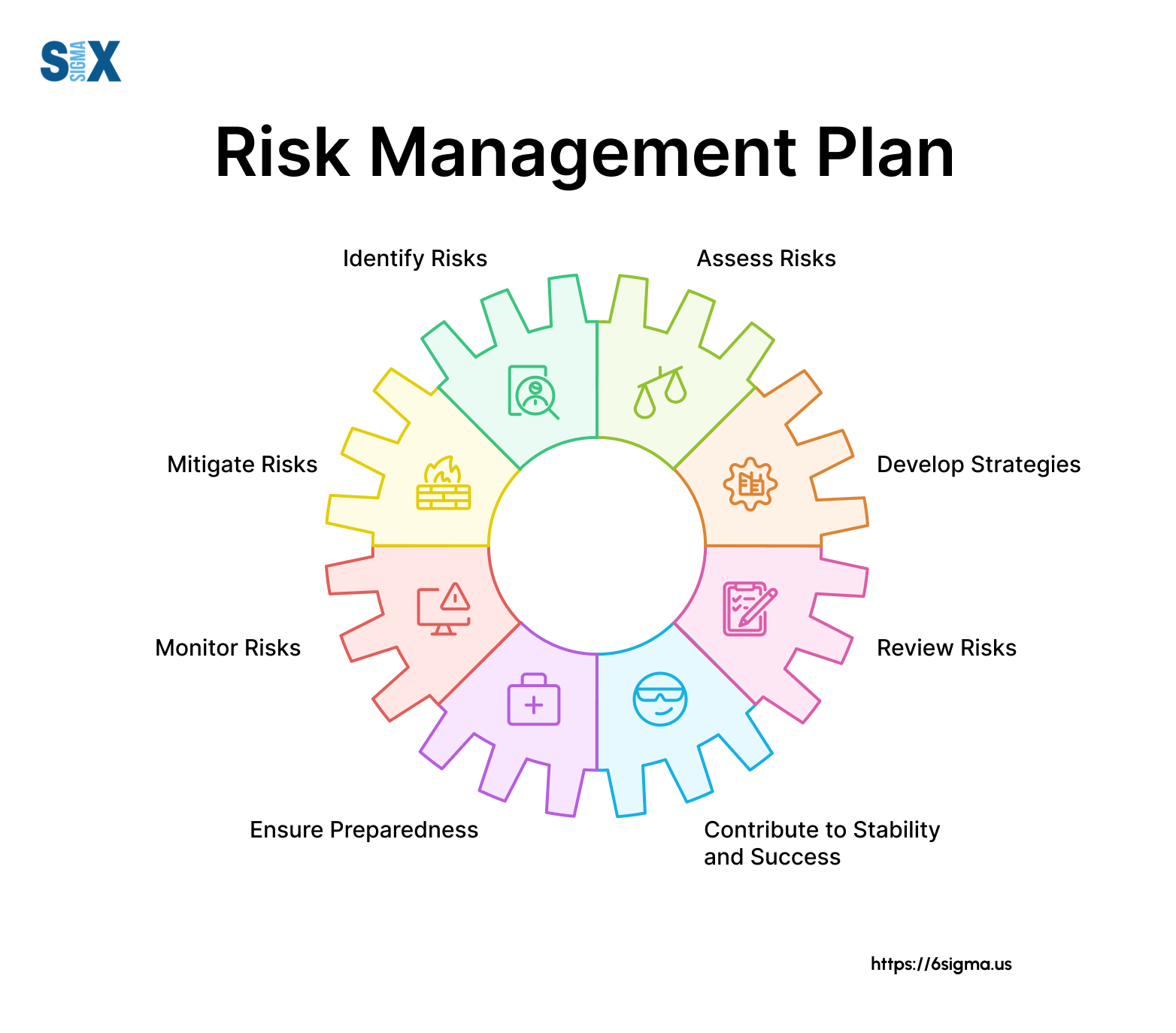Exploring the Long-Term Benefits and Importance of Risk Management for Entrepreneurs
Exploring the Long-Term Benefits and Importance of Risk Management for Entrepreneurs
Blog Article
The Vital Importance of Risk Management in Getting Organizational Goals
In the swiftly evolving business landscape, the capacity to navigate uncertainty has come to be a critical. This is where Risk Management actions in, supplying an organized technique to determining, evaluating, and mitigating potential barricades to progress. It's greater than simply a protective measure - it's a strategic tool, promoting strength and technology. As we explore the important role of Risk Management in accomplishing business objectives, one can not question however assist: how does this equate into real-world success?
Understanding the Concept of Risk Management in Organization

The Indispensable Role of Risk Management in Strategic Planning
Integrating Risk Management right into strategic planning acts as a safeguard for organizations, anchoring their long-term strategies with a solid foundation of preparedness and durability. Risk Management offers a structure for anticipating unpredictabilities and developing suitable responses, making certain the company's survival and prosperity also in the face of hardship. By incorporating Risk Management into critical planning, companies can transform these unpredictabilities right into chances for growth and technology.

Techniques for Identifying, Assessing, and Focusing On Dangers
The process begins with Risk identification, utilizing devices such as SWOT evaluation, which aids in pinpointing potential threats and possibilities. Next, Risk assessment is conducted to establish the prospective impact and chance of each Risk. Threats are focused on based on their possible influence and probability, permitting Check Out Your URL companies to concentrate their sources on critical dangers.
Securing Organizational Workflow Through Efficient Risk Management
In the company landscape fraught with uncertainties, reliable Risk Management plays an essential function in guarding organizational operations. It acts as a protective shield, mitigating the negative results of potential dangers and making sure the smooth functioning of all procedures. By identifying and examining possible threats, Risk Management allows companies to develop robust backup plans. This preventive strategy aids in maintaining functional stability, even when confronted with unanticipated situations. Basically, Risk Management is the lifeline that maintains the organizational procedures afloat in the middle of turbulent waters. It makes certain not only the survival but the sustainable development of an organization, making it a vital tool in attaining company goals. Hence, organizations need to purchase thorough Risk Management approaches to secure their procedures.

Converting Prospective Threats to Opportunities: The Power of Risk Management
While prospective risks might originally look like roadblocks to organizational success, efficient Risk Management can transform them into chances. A positive technique to run the risk of Management entails determining, examining, and prioritizing threats Your Domain Name to design strategies that transform them into prospective advantages. This procedure demands the development of a risk-aware society within the organization, urging individuals to see dangers as potential stimulants for adjustment and growth, instead than plain risks. importance of risk management. Through this lens, possible risks end up being chances to introduce, boost processes, and enhance strength. Thus, by leveraging the power of Risk Management, companies can not just guard their procedures however also stimulate development and achieve their goals in an unforeseeable service environment.
Instance Studies: Success Stories of Risk Management Driving Business Objectives
Effective execution of Risk Management techniques has produced remarkable results in numerous companies, emphasizing the values of this strategy. Multinational companies like Microsoft and Google, for instance, have actually leveraged Risk Management to decrease threats and manipulate possibilities, driving their company purposes forward. These examples show how successful Risk Management can not just guide companies clear of possible mistakes yet also guide them towards their critical purposes.
Conclusion
In final thought, Risk Management is basically essential in attaining business objectives. It uses a systematic technique to determining, examining, and addressing potential threats and check my blog chances. Greater than simply mitigating risks, it also fosters advancement, durability, and lasting development. By including Risk Management right into critical preparation, organizations can much better browse unpredictabilities, protect operations, and capitalise on possibilities, therefore straightening with long-term objectives.
At its core, Risk Management is the procedure of recognizing, examining, and attending to possible hazards that can adversely affect an organization's procedures or goals. Next, Risk evaluation is conducted to identify the prospective influence and chance of each Risk. Threats are prioritized based on their potential effect and possibility, permitting companies to concentrate their resources on high-priority dangers. By determining and evaluating possible threats, Risk Management enables organizations to establish durable backup strategies. An aggressive technique to risk Management involves recognizing, evaluating, and focusing on risks to design techniques that transform them into possible benefits.
Report this page